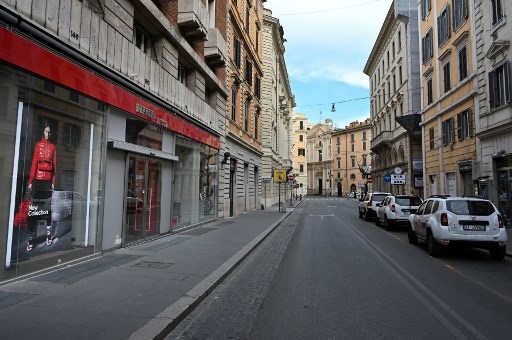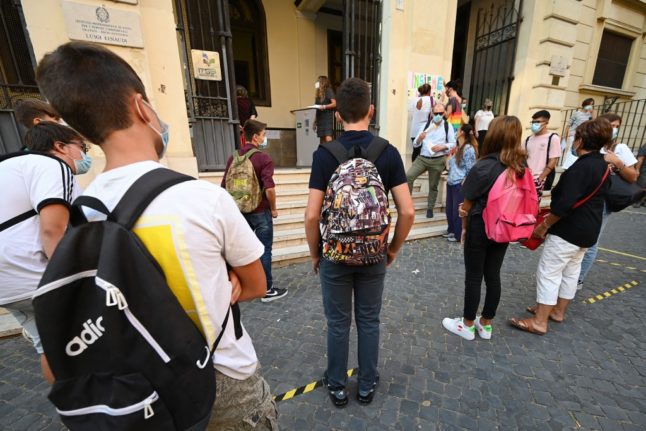There were 250 deaths recorded over the past 24 hours, taking the total to 1,266, with 17,660 infections overall, a rise of 2,547 since Thursday evening.
Italy has the second-highest number of deaths after China, official data showed.
Over 1,000 patients were in intensive care.
Many of these intensive care patients are in the Lombardy region alone, where hospitals are struggling to cope.
The northern region of Lombardy is by far the worst-hit part of Italy. It has also seen most of the deaths.
In total, 16 of Italy's regions have now recorded at least one death linked to coronavirus.
On Friday four footballers from Sampdoria and one at Fiorentina have tested positive for coronavirus, the Italian clubs said.
The European Commission promised on Friday to provide Italy with whatever support it needs to overcome the challenge of the coronavirus, after complaints that Brussels had been slow to react.
“We are absolutely ready to help Italy with whatever is necessary. This is of the utmost importance. This country is severely hit by coronavirus,” European Commission chief Ursula von der Leyen told reporters.
“So whatever is necessary, we support. Whatever they will need, we will answer.”
Italy's overall fatality rate from the virus is currently estimated at 6.6 percent, though the rate in the Lombardy region is thought to be 8.1 percent of all cases, while the average across all other regions is calculated at 3.7 percent.
This figure doesn't tell the true story however given that it's based only on confirmed cases. It is believed there are many more undetected cases.
With the rapid increase in cases in Italy, the government has implemented nationwide measures to control the spread of the virus, which includes closing all non-essential stores.
These included a ban on public gatherings, closure of cinemas and tourist attractions, and tight travel restrictions until April 3.
READ ALSO:
The overwhelming majority of the fatalities and infections were still being recorded in the north, with southerns regions largely spared.
Italy's health system has been placed under severe strain by the outbreak and officials are concerned that hospitals in the poorer south of the country would not be able to cope if the outbreak worsened there.
However the new quarantine measures apply equally to all parts of the country.
The Italian government also announced on Wednesday it would spend up to 25 billion euros ($28 billion) to fight the epidemic and relieve some of the intense strain from the country's hospitals and economy.
READ ALSO: The everyday coronavirus precautions to take if you're in Italy
Italy's Economy Minister Roberto Gualtieri said half the money would be used immediately and the other half stowed away and tapped should the health crisis spiral out of control.
More than 70 percent of people who contracted COVID-19 in China have now recovered, according to the World Health Organization.
Most cases result in only mild symptoms, the WHO says. But the virus can be life-threatening to the elderly and people with pre-existing medical conditions including diabetes and high blood pressure.
Find all The Local's coverage of the coronavirus outbreak in Italy here.



 Please whitelist us to continue reading.
Please whitelist us to continue reading.
Member comments